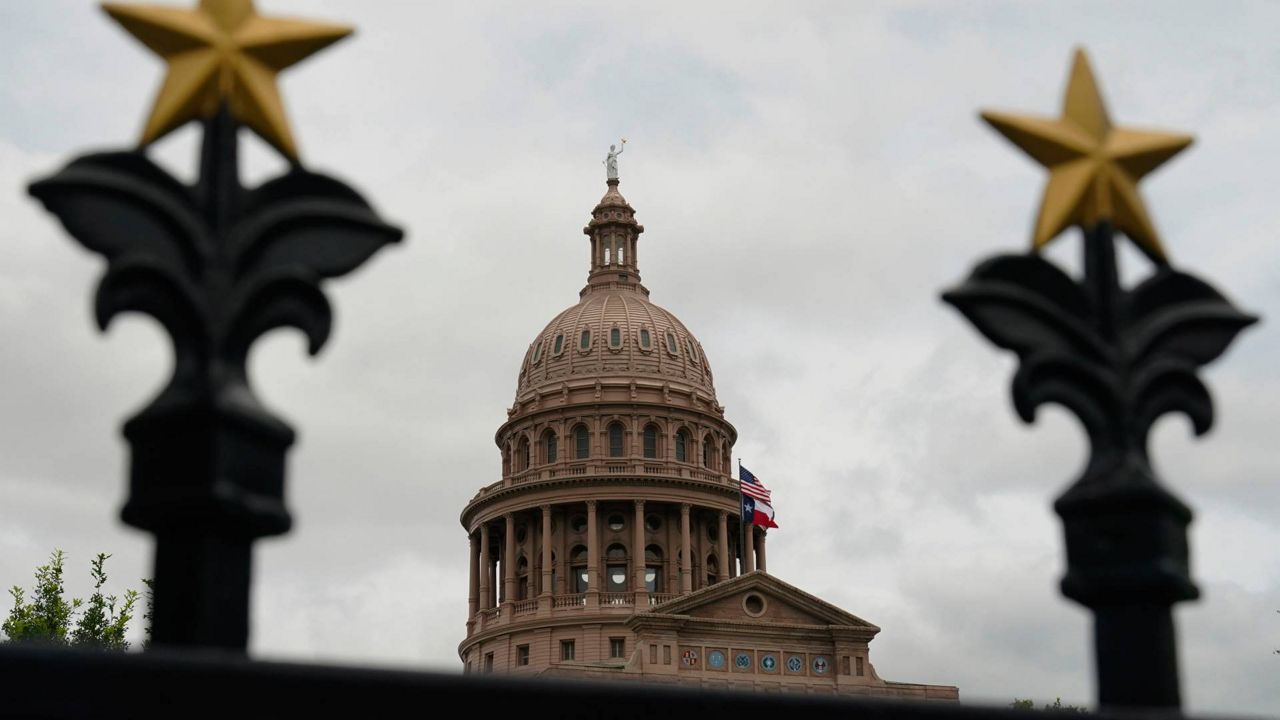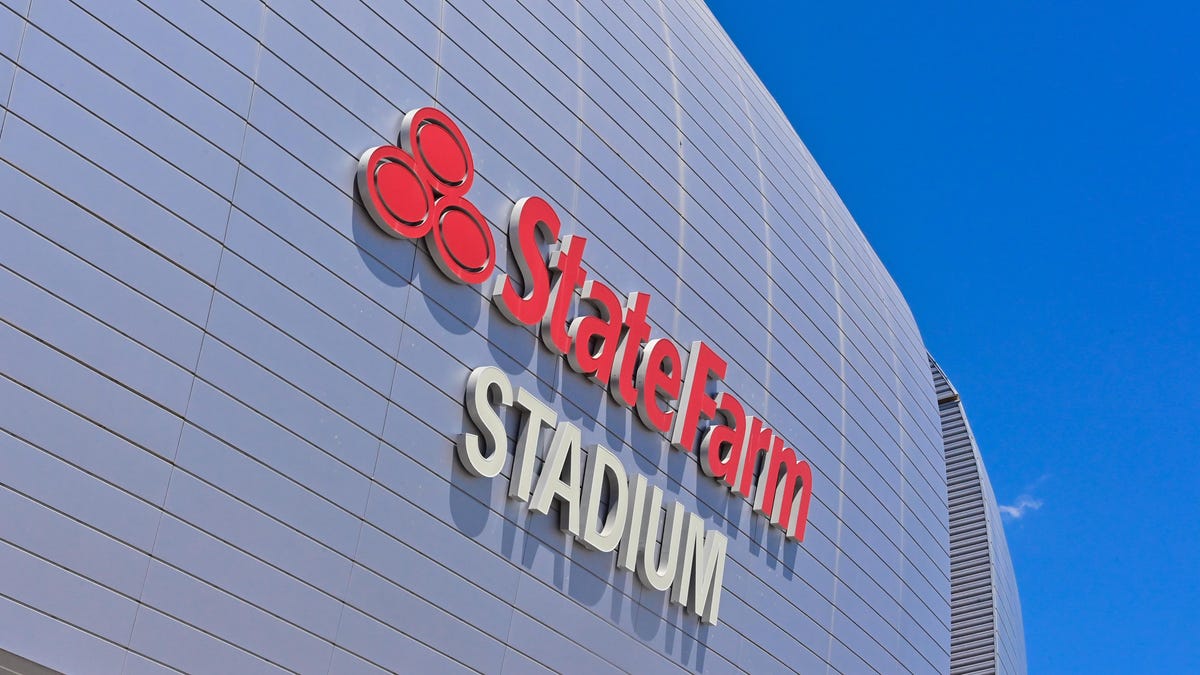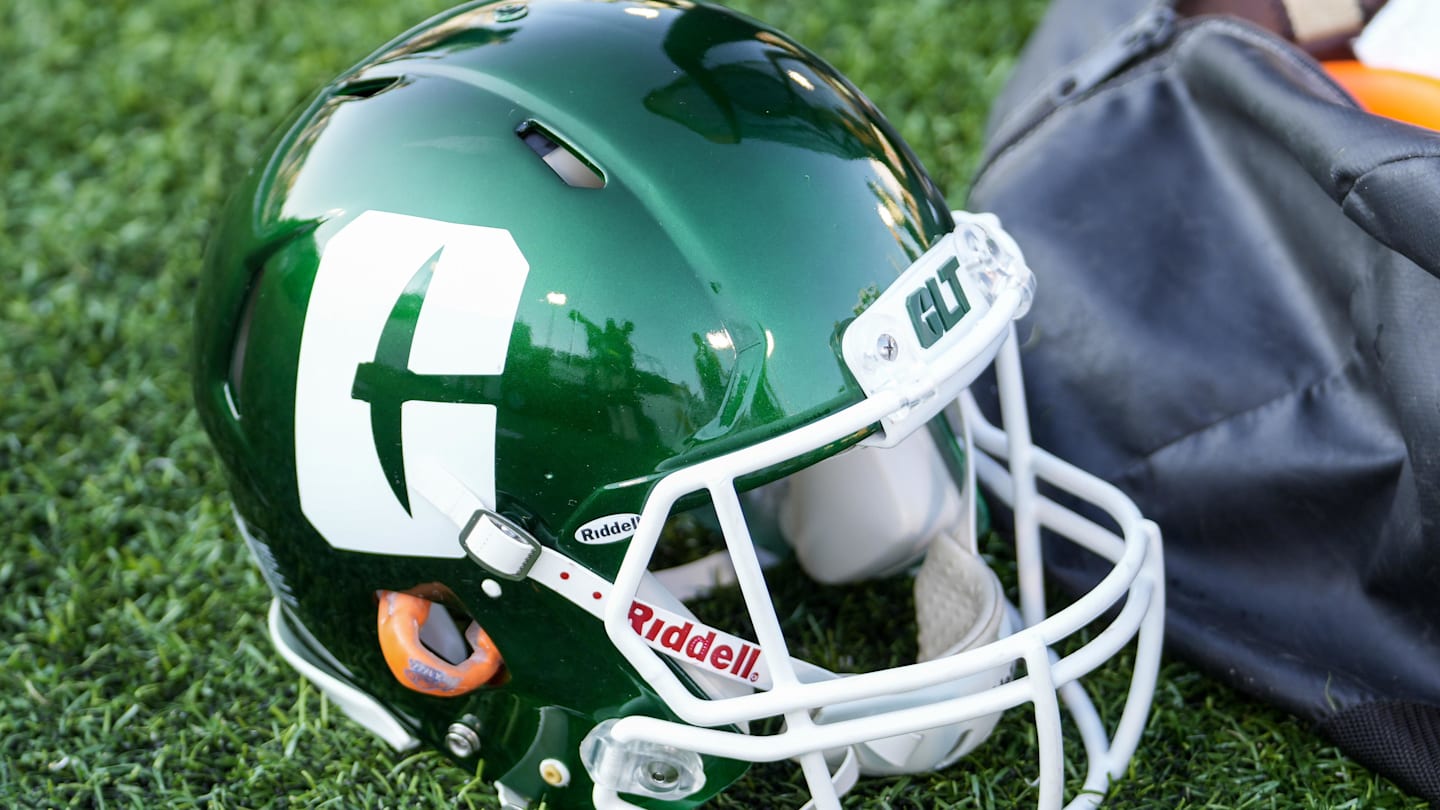World
Cautious calm prevails around US court where Trump will appear
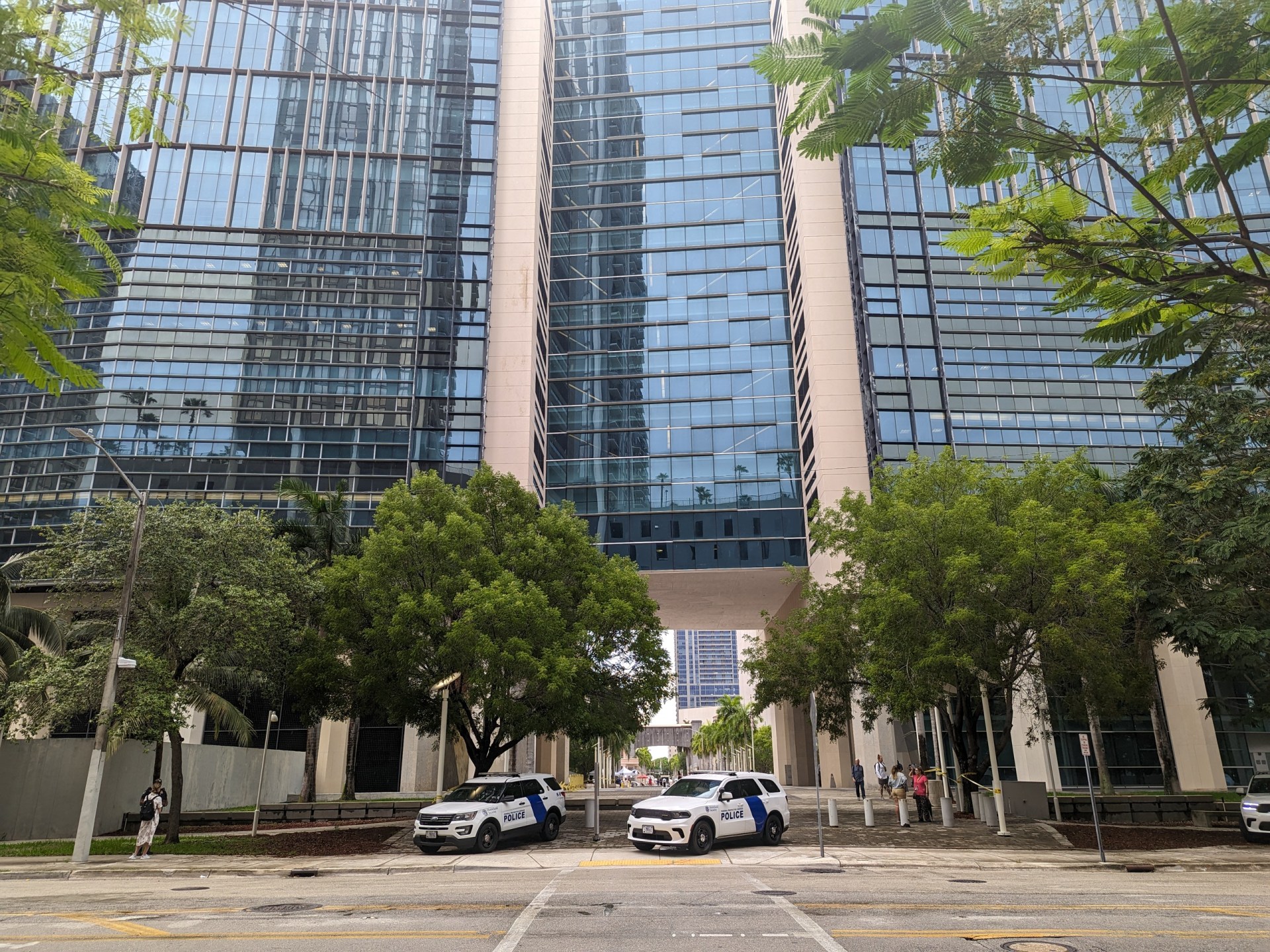
Miami, Florida – David Miller, who lives across from the Miami court where former United States President Donald Trump is set to face federal charges, describes himself as apolitical.
But as he walks past dozens of journalists and law enforcement agents getting ready for Trump’s arraignment on Tuesday, the Miami resident says his main concern is order in the community.
“I just want peace. I don’t want to see people destroying stuff,” Miller told Al Jazeera on Monday afternoon.
Cautious calm — draped in anticipation — prevailed outside the courthouse. The quiet was regularly interrupted by the sounds of helicopters hovering above the onlookers.
News trucks and police cars lined the streets around the building, as journalists set up their equipment under canopy tents for protection from the afternoon downpours that come with little warning in South Florida.
But there were no protesters. Normal vehicle traffic passed through the streets, along with the occasional tourist or locals walking their dogs — often visibly confused by the scene.
For Miller, the commotion anticipated will be a nuisance for residents but an expected one, given the involvement of the former president.
“We don’t want loud noises, banging, stuff exploding, people yelling and acting crazy. Have some respect,” said Miller, who is in his early 30s.
“This is an important event. The president of the United States is about to face criminal charges; you should at least give him the chance to respectfully say his piece and not cause chaos.”
Local officials ‘ready’ for protests
Local officials are expecting pro-Trump protesters and possibly counter-demonstrations at the courthouse on Tuesday, but it remains unclear how big these gatherings will be.
Trump, who is running again for the White House in 2024, became the first former US president to be federally indicted last week when he was charged with 37 counts of mishandling classified documents after leaving the presidency in 2021.
Earlier this year, he also became the first president to be criminally prosecuted at the state level when he was charged in New York in relation to a hush money payment he made to a porn star ahead of the 2016 elections.
His arraignment in New York drew crowds of supporters and opponents, but the proceeding largely passed without incident amid fears of political violence.
Trump has denied all charges against him, blaming his legal troubles on a push by his political foes to derail his 2024 campaign.
Jamila Diallo, who was standing with her young child in a stroller across from the Miami court on Monday, was not entirely sure what the fuss was all about. She had stopped watching the news, she told Al Jazeera, partly because of Trump.
“Go away for good,” she said, addressing Trump. “I’m tired of it. It’s been a long time.” Still, she added that it was “pretty cool” that the court proceedings will be in the neighbourhood where she recently moved.
Diallo had a message to pro-Trump protesters who may be looking to stir things up on Tuesday: “Stay home and don’t cause any trouble, or you’re going to end up like him.”
Miami Police Chief Manuel Morales said his department is “ready” for Trump’s arraignment in federal court. “We’re bringing in enough resources to handle crowds anywhere from 5,000 to 50,000. We don’t expect any issues,” he told reporters at a news conference on Monday.
Similarly, Mayor Francis Suarez said the city will maintain “law and order”, as well as preserve the free-speech rights of any protesters.
The officials said city law enforcement will be cooperating with federal agents as well as the county’s Miami-Dade Police Department to secure the proceedings.
A spokesperson for the Miami-Dade Police Department told Al Jazeera in an email that the force is “prepared to provide any assistance, support, or resources requested by our partners at the City of Miami Police Department”.
Fears of violence
Trump and his allies have encouraged protests ahead of the court hearing. US Democrats have raised concerns specifically about comments from Kari Lake, a former Republican candidate for governor in Arizona, who invoked the National Rifle Association (NRA), a pro-gun lobby, while defending Trump.
“If you want to get to President Trump, you’re going to have to go through me and you’re going to have to go through 75 million Americans just like me,” Lake said on Friday. “And I’m going to tell you, most of us are card-carrying members of the NRA. That’s not a threat — that’s a public service announcement.”
Far-right violence has been a growing worry in the US since Trump’s supporters stormed the Capitol in an attempt to prevent the certification of President Joe Biden’s victory on January 6, 2021. Trump has refused to accept his electoral loss, falsely claiming that the 2020 presidential race was “rigged”.
But outside the Miami court on Monday, the crowd consisted of bystanders, tourists, journalists and police officers, not Trump supporters.
Dustin, a Canadian tourist who chose to identify by his first name only, described the media presence around the building as a “feeding frenzy” that Trump would love to see.
He added that it was “very interesting” to witness the situation.
Dustin, who described himself as a Canadian conservative, said he feels like Trump was being singled out, while previous US presidents have done a lot worse.
“The war in Iraq, for instance, that was a colossal failure. There were no weapons of mass destruction,” he said.
Dustin noted that President Biden also was in possession of classified documents outside of official settings. But Trump’s critics say that — unlike Biden and ex-Vice President Mike Pence, who was also in possession of sensitive government documents — the former president did not merely take classified files by mistake. Rather, he retained them on purpose and refused to turn them over when asked to do so by the authorities.
The case will play out in court in Miami over the next month, with the lead prosecutor Jack Smith promising a “speedy trial”.
Outside the court’s immediate vicinity on Monday, life seemed to go on as normal.
“Donald Trump, too much problems — mucho problema. But it’s going to pass,” said Manny Osorio, who operates a hotdog stand a block from the court, switching between Spanish and English.
“Maybe tomorrow is good for business,” he added, seeming to find a silver lining in the whole affair.

World
Monday’s Vikings-Rams NFL Playoff Game Moved to Arizona Due to L.A. Wildfires

ad
World
Details of Venezuelan opposition leader's possible arrest remain unclear amid Maduro inauguration resistance
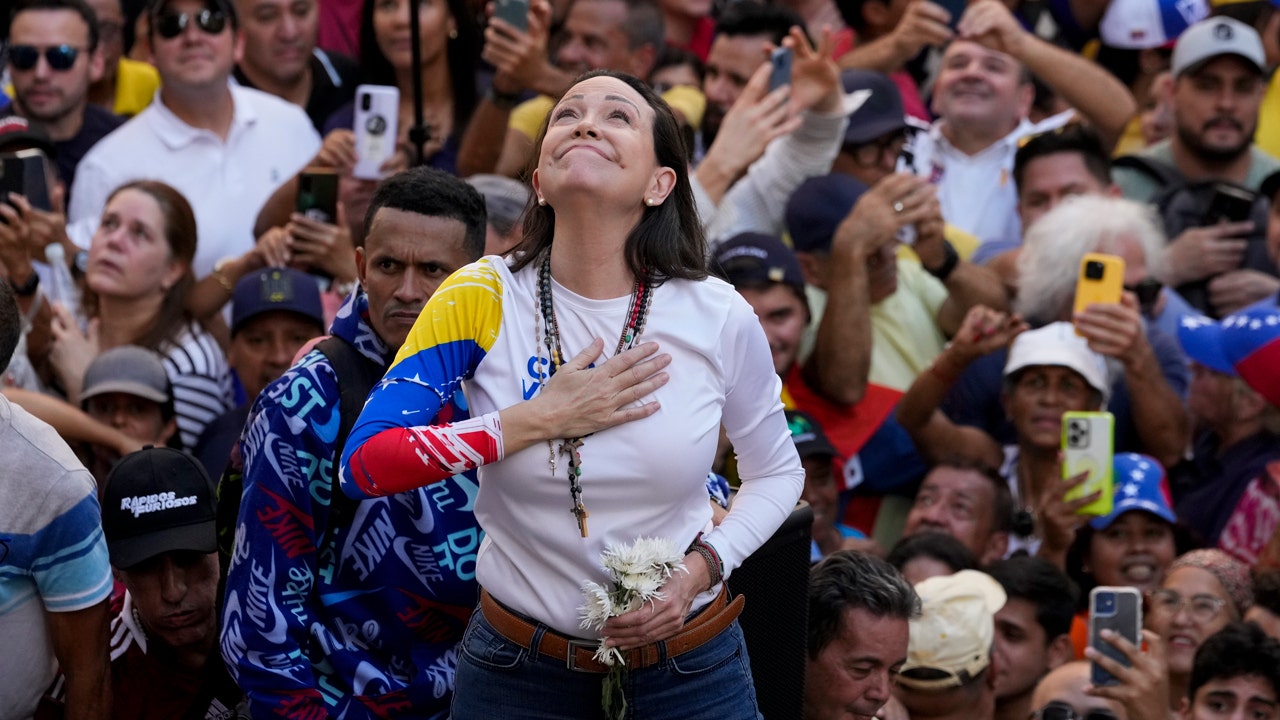
Aides to Venezuela opposition leader Maria Corina Machado said she was detained Thursday, followed moments later by official denials, in a confusing episode that capped a day of protests seeking to block President Nicolás Maduro from clinging to power.
It’s not clear exactly what transpired after Machado bid farewell to hundreds of supporters, hopped on a motorcycle and raced with her security convoy through the empty streets of eastern Caracas to an undisclosed location.
At 3:21 p.m. local time, Machado’s press team said in a social media post that security forces “violently intercepted” her convoy. Her aides later confirmed to The Associated Press that the opposition hardliner had been detained, and international condemnation immediately poured from leaders in Latin America and beyond demanding her release.
But about an hour later, a 20-second video of Machado was posted online by a Maduro supporter in which the opposition leader said she was followed after leaving the rally and that she had dropped her purse. “I’m good, I’m safe,” Machado said in a raspy voice, adding “Venezuela will be free.”
THOUSANDS OF VENEZUELAN OPPOSITION SUPPORTERS TAKE TO THE STREETS AHEAD OF MADURO’S THIRD INAUGURATION
Her aides later said in a social media post that the proof-of-of-life video message had been coerced, and that after recording it she was freed. They said she would provide details of her “kidnapping” later.
Meanwhile, Maduro supporters denied that she was detained and gloated that government opponents were trying to spread fake news to generate an international crisis. “Nobody should be surprised,” Communications Minister Freddy Nanez said. “Especially since it’s coming from the fascists, who were the architects of the dirty trick.”
Earlier Thursday, Machado addressed hundreds of supporters who heeded her call to take to the streets a day before the ruling party-controlled National Assembly was scheduled to swear in Maduro to a third six-year term despite credible evidence that he lost the presidential election.
“They wanted us to fight each other, but Venezuela is united, we are not afraid,” Machado shouted from atop a truck in the capital minutes before she was reported detained.
Machado, 57, is a hardliner former lawmaker who stayed and fought against Maduro even after many of her allies in the opposition leadership fled, joining an exodus of some 7 million Venezuelans who’ve abandoned their homeland in recent years.
Loyalists who control the country’s judiciary banned her from running against Maduro last year. In a deft move, she backed an unknown outsider — retired diplomat Edmundo González — who crushed Maduro by a more than two-to-one margin, according to voting machine records collected by the opposition and validated by international observers.
Venezuelan opposition leader Maria Corina Machado addresses supporters at a protest against President Nicolas Maduro in Caracas, Venezuela, Thursday, Jan. 9, 2025, the day before his inauguration for a third term. (AP Photo/Ariana Cubillos)
González, invoking the title of president-elect recognized by the U.S. and other countries, was among those who demanded Machado’s release in the immediate aftermath of what was believed to be her shock arrest.
“To the security forces, I warn you: don’t play with fire,” he said in a social media post from the Dominican Republic, where he met with President Luis Abinader and a delegation of former presidents from across Latin America.
There was a relatively small turnout for Thursday’s protests as riot police were deployed in force. Venezuelans who’ve witnessed Maduro’s security forces round up scores of opponents and regular bystanders since the July election were reluctant to mobilize in the same numbers as they have in the past.
“Of course, there’s fewer people,” said empanada vendor Miguel Contrera as National Guard soldiers carrying riot shields buzzed by on motorcycles. “There’s fear.”
Those demonstrators that did show up blocked a main avenue in one opposition stronghold. Many were senior citizens and dressed in red, yellow and blue, answering Machado’s call to wear the colors of the Venezuelan flag. All repudiated Maduro and said they would recognize González as Venezuela’s legitimate president.
The deployment of security forces as well as pro-government armed groups known as “colectivos” to intimidate opponents betrays a deep insecurity on the part of Maduro, said Javier Corrales, a Latin America expert at Amherst College.
Since the elections, the government has arrested more than 2,000 people — including as many as 10 Americans and other foreigners — who it claims have been plotting to oust Maduro and sow chaos in the oil rich South American nation. This week alone, masked gunmen arrested a former presidential candidate, a prominent free speech activist and even González’s son-in-law as he was taking his young children to school.
“It’s an impressive show of force but it’s also a sign of weakness,” said Corrales, who co-authored this month an article, “How Maduro Stole Venezuela’s Vote,” in the Journal of Democracy.
“Maduro is safe in office,” said Corrales, “but he and his allies recognize they are moving forward with a big lie and have no other way to justify what they are doing except by relying on the military.”
Venezuela’s National Electoral Council, also stacked with government loyalists, declared Maduro the winner of the election. But unlike in previous contests, authorities did not provide any access to voting records or precinct-level results.
The opposition, however, collected tally sheets from 85% of electronic voting machines and posted them online. They showed that its candidate, González, had thrashed Maduro by a more than two-to-one margin. Experts from the United Nations and the Atlanta-based Carter Center, both invited by Maduro’s government to observe the election, have said the tally sheets published by the opposition are legitimate.
The U.S. and other governments have also recognized González as Venezuela’s president-elect. Even many of Maduro’s former leftist allies in Latin America plan to skip Friday’s swearing-in ceremony.
President Joe Biden, meeting González at the White House this week, praised the previously unknown retired diplomat for having “inspired millions.”
“The people of Venezuela deserve a peaceful transfer of power to the true winner of their presidential election,” Biden said following the meeting.
World
‘Much more persecution’: Venezuela braces for Nicolas Maduro’s inauguration

Bogota, Colombia – Jesus Medina Ezaine had already spent 16 months in a Venezuelan military prison, accused of crimes he said were related to his work as a photojournalist.
But another prison stint seemed imminent, particularly after the contested re-election of Venezuelan President Nicolas Maduro.
With Maduro set to be sworn in for a third term, Medina, 43, made a difficult decision: to flee his home in Venezuela for the relative safety of Bogota, the capital of neighbouring Colombia.
“Before they could put me back in prison, I decided to escape,” said Medina.
Maduro’s government has long faced criticism for the alleged repression of political rivals. But Friday’s inauguration ceremony is set to bring the recent electoral crisis to a head, with observers warning that the violence may escalate as Maduro strives to hold onto power.
“The regime is going to do everything they can to ensure that Maduro can be re-inaugurated and that he can continue with his administration,” said Juan Pappier, deputy director of Human Rights Watch’s Americas division.
“If they see that possibility challenged in any way, for example through [opposition-led] demonstrations, they are going to repress them brutally.”
A climate of fear
Medina remembers his final months in Venezuela as being drenched in fear.
In the lead-up to the controversial election, he had joined the campaign of opposition leader Maria Corina Machado as a photographer, documenting her efforts to galvanise support for presidential candidate Edmundo Gonzalez.
But that work once again made him a target.
Medina was not unknown to the Maduro government: In 2018, he was arrested on charges of money laundering, criminal association and inciting hate, all of which he denies.
Instead, he maintains his arrest was in retaliation for his reporting on human rights abuses. He was held without trial in the Ramo Verde military prison until January 2020.
“The Venezuelan regime does not tolerate any comments or information against them,” he said.
“The media is scared,” Medina added. “Freedom of expression in Venezuela has been completely lost because journalists inside Venezuela are doing what they can to avoid imprisonment.”
But the presidential election on July 28, 2024, brought political repression worse than any Medina had witnessed before.
Hours after polls closed, the National Electoral Council named Maduro the winner, without offering its usual breakdown of voting tallies.
Meanwhile, the opposition published receipts of the votes that instead suggested Gonzalez had won the election with nearly 70 percent of the vote. As protests erupted over the alleged electoral fraud, a government crackdown ensued.
As state forces swept the streets for protesters, seizing dissidents from their homes, Medina said he was tipped off that he would be jailed — again.
He quickly went into hiding. Medina spent two months holed up in different locations in the capital Caracas, trying to avoid arrest. He said the country’s intelligence forces had already knocked at the door of his home in the city.
Feeling cornered, Medina decided to flee on September 15 to Bogota, where he has stayed ever since.

A wave of repression
As many as 2,500 people were ultimately detained in the post-election protests, according to government statistics.
Another 25 people were killed, in what independent investigators for the United Nations called “unprecedented levels of violence”.
A UN fact-finding mission announced earlier this month that at least 56 political opposition activists, 10 journalists and one human rights defender were among the arrested between August and December.
On Tuesday, the Inter-American Commission on Human Rights also published a report alleging systematic state repression intended “to prevent the political participation of the opposition” and “sow terror among citizens”.
But in the lead-up to Friday’s inauguration, more than 1,500 prisoners detained in the post-election sweep have been released, in what critics say could be an attempt to reduce scrutiny on the government’s human rights record.
Alfredo Romero, the director of Foro Penal, a Venezuelan human rights watchdog, explained that “having a number of innocent youths with their relatives, especially their mothers, at the door of the prisons” holding vigils was reflecting poorly on the Maduro administration.
Rights groups have also questioned the accuracy of the government’s numbers.
Romero said that at least 1,749 prisoners remained in custody as of the first week of January, and more alleged dissidents had since been detained.
“People may be released from prison, but it doesn’t mean that new ones won’t be jailed,” he said.

Inauguration backlash
Despite widespread fear over repression, demonstrations are expected on the day of Maduro’s third inauguration.
Gonzalez, the opposition’s presidential candidate, has also pledged to return to Venezuela from his exile abroad and be sworn in on Friday. It is unclear how or if he will follow through on that pledge.
In a video message posted to social media on Sunday, Machado, who has remained in hiding in Venezuela for months, called on Venezuelans to march in support of a transition of power this week.
“Maduro is not going to leave on his own, we must make him leave with the strength of a population that never gives up,” Machado said. “It is time to stand firm and make them understand that this is as far as they go. That this is over.”
In turn, the Maduro government has ramped up security and deployed more than 1,200 military personnel to cities across the country to “guarantee peace” on inauguration day.
The government has also detained more than 12 human rights defenders, political activists, and relatives of opposition figures in recent days, according to Amnesty International, a human rights organisation.
The detainments allegedly include Gonzalez’s son-in-law, Rafael Tudares: The presidential candidate said Tudares was abducted by masked men in Caracas on Tuesday.
And on Thursday, Machado herself was detained as she left an anti-Maduro protest, according to opposition officials who said her transportation was fired upon. She was swiftly released.

An uncertain future
The recent arrests have prompted a new swell of international condemnation.
The United States Embassy in Venezuela has called the detention of Gonzalez’s son-in-law an act of “intimidation” against the opposition. Colombian President Gustavo Petro said that the arrests prevented him from attending Maduro’s inauguration on Friday.
Still, Maduro’s control of state institutions has allowed security forces to act with impunity, according to the recent report from the Inter-American Commission on Human Rights.
Medina himself believes repression in Venezuela may escalate if Maduro remains in power for a third term.
“If we do not achieve freedom, there will be much more persecution,” said Medina. “They will try to put an end to everything that they consider the opposition, including political leaders and the media.”
For now, he added that he hopes to continue his work exposing human rights abuses from abroad.
“What I have decided is that, no matter what, I’ll fight for my country.”
-

 Business1 week ago
Business1 week agoThese are the top 7 issues facing the struggling restaurant industry in 2025
-

 Culture1 week ago
Culture1 week agoThe 25 worst losses in college football history, including Baylor’s 2024 entry at Colorado
-

 Sports1 week ago
Sports1 week agoThe top out-of-contract players available as free transfers: Kimmich, De Bruyne, Van Dijk…
-

 Politics1 week ago
Politics1 week agoNew Orleans attacker had 'remote detonator' for explosives in French Quarter, Biden says
-

 Politics1 week ago
Politics1 week agoCarter's judicial picks reshaped the federal bench across the country
-

 Politics5 days ago
Politics5 days agoWho Are the Recipients of the Presidential Medal of Freedom?
-

 Health4 days ago
Health4 days agoOzempic ‘microdosing’ is the new weight-loss trend: Should you try it?
-

 World1 week ago
World1 week agoIvory Coast says French troops to leave country after decades




